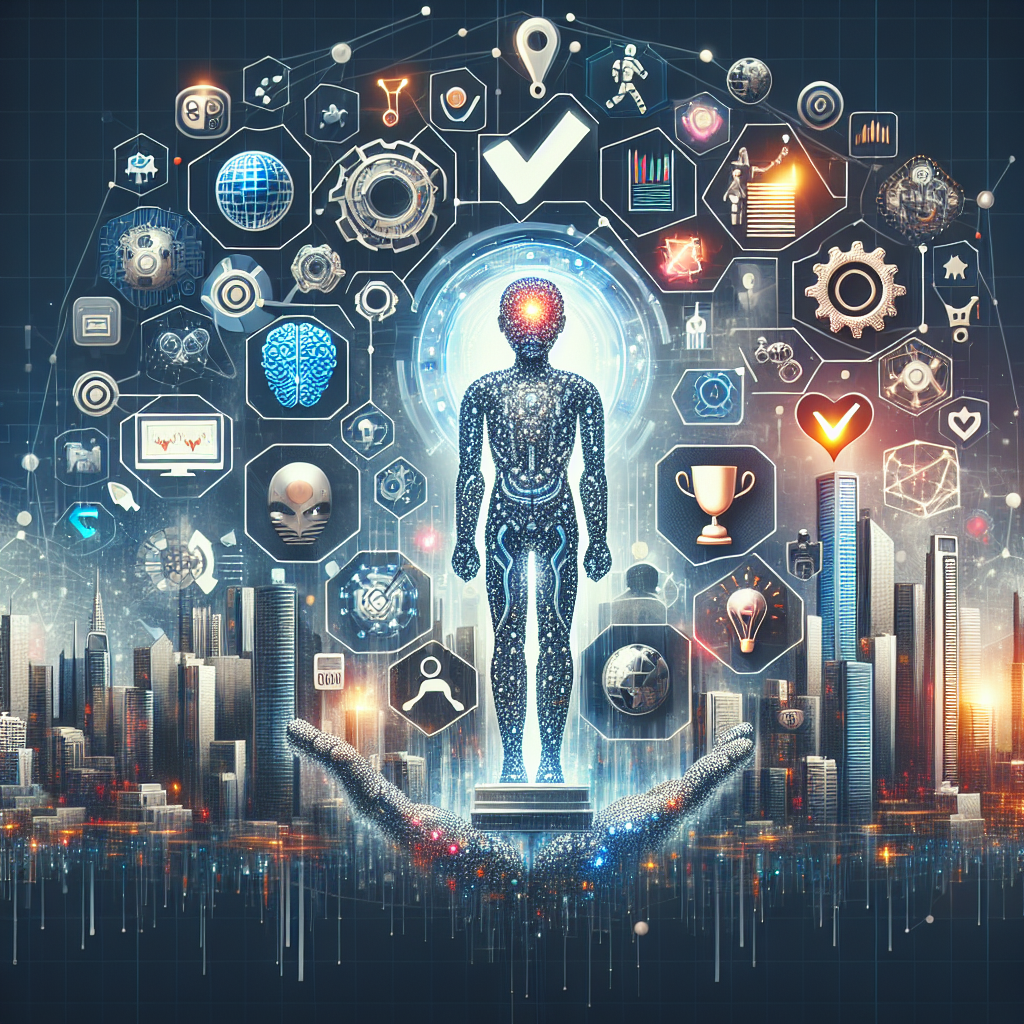Artificial General Intelligence (AGI) is a term that refers to AI systems that possess the ability to understand, learn, and apply knowledge in a way that is indistinguishable from human intelligence. While AGI is still a relatively new field, there have been some exciting developments in recent years that showcase the potential of this technology in real-world applications. In this article, we will explore some of the success stories and applications of AGI, as well as address some commonly asked questions about this emerging technology.
Real-World Applications of AGI
1. Healthcare: One of the most promising applications of AGI is in the field of healthcare. AGI systems have the potential to analyze large amounts of medical data and assist healthcare professionals in diagnosing diseases, predicting patient outcomes, and personalizing treatment plans. For example, a company called PathAI is using AGI to improve the accuracy of cancer diagnoses by analyzing pathology slides.
2. Finance: AGI is also being used in the finance industry to analyze market trends, identify investment opportunities, and predict stock prices. Hedge funds and investment firms are increasingly turning to AGI systems to gain a competitive edge in the market. For example, the company Aidyia uses AGI to make trading decisions based on complex financial data.
3. Manufacturing: AGI is revolutionizing the manufacturing industry by optimizing production processes, predicting equipment failures, and improving product quality. Companies like Siemens are using AGI to create self-learning production systems that can adapt to changing conditions in real-time.
4. Autonomous Vehicles: AGI is a key technology in the development of autonomous vehicles. Companies like Waymo and Tesla are using AGI to power their self-driving cars, enabling them to navigate complex road conditions, recognize objects, and make split-second decisions to ensure the safety of passengers and pedestrians.
5. Customer Service: AGI is also being used to improve customer service experiences by providing personalized recommendations, answering questions, and resolving issues in real-time. Companies like Amazon and Google are using AGI-powered chatbots to interact with customers and provide assistance.
Success Stories of AGI
1. AlphaGo: In 2016, the AI system AlphaGo made headlines by defeating the world champion Go player, Lee Sedol. AlphaGo’s success showcased the power of AGI in mastering complex games and demonstrated its potential in solving real-world problems.
2. OpenAI: OpenAI is a research organization that is dedicated to developing safe and beneficial AGI. Their work has led to breakthroughs in natural language processing, robotics, and reinforcement learning. OpenAI’s GPT-3 model, for example, is one of the most advanced language models in the world.
3. DeepMind: DeepMind, a subsidiary of Google, has made significant strides in the field of AGI. Their AlphaZero algorithm is capable of mastering multiple games, including chess, shogi, and Go, without any prior knowledge of the rules. DeepMind’s work has paved the way for the development of more versatile and adaptable AGI systems.
4. IBM Watson: IBM Watson is another success story in the field of AGI. Watson has been used in various industries, including healthcare, finance, and customer service, to analyze data, make predictions, and assist professionals in decision-making. Watson’s ability to understand natural language and learn from experience makes it a valuable tool in many applications.
5. Tesla Autopilot: Tesla’s Autopilot system is a prime example of AGI in action. The system uses a combination of sensors, cameras, and AI algorithms to navigate roads, detect obstacles, and make driving decisions. Tesla’s Autopilot has already saved lives and is continuously improving through over-the-air software updates.
Frequently Asked Questions about AGI
1. What is the difference between AGI and narrow AI?
AGI refers to AI systems that possess general intelligence and can perform a wide range of tasks, while narrow AI systems are designed for specific applications or tasks. AGI has the ability to learn, reason, and adapt to new situations, whereas narrow AI is limited to the tasks it was designed for.
2. Is AGI a threat to humanity?
There is ongoing debate about the potential risks of AGI, including concerns about job displacement, bias in decision-making, and the possibility of AGI systems surpassing human intelligence. It is essential for researchers and policymakers to address these concerns and ensure that AGI is developed and deployed responsibly.
3. How can businesses benefit from AGI?
Businesses can benefit from AGI in various ways, including improved decision-making, increased efficiency, enhanced customer experiences, and new revenue streams. By leveraging AGI technologies, companies can gain a competitive edge in their respective industries and drive innovation.
4. What are the ethical implications of AGI?
Ethical considerations are crucial in the development and deployment of AGI systems. It is essential to ensure that AGI is used in a way that respects human rights, promotes fairness and transparency, and prioritizes safety and security. Ethical frameworks and guidelines can help guide the responsible development of AGI.
5. How can I learn more about AGI?
There are many resources available for individuals who are interested in learning more about AGI, including online courses, books, research papers, and conferences. Organizations like OpenAI, DeepMind, and IBM also provide valuable insights and updates on the latest developments in the field of AGI.
In conclusion, AGI has the potential to transform various industries and revolutionize the way we live and work. By harnessing the power of AGI, we can solve complex problems, improve decision-making, and create new opportunities for innovation. While there are challenges and risks associated with AGI, it is essential to approach this technology with caution and responsibility to ensure its benefits are realized in a safe and ethical manner. As AGI continues to evolve, it will be exciting to see how this technology shapes the future of AI and society as a whole.

